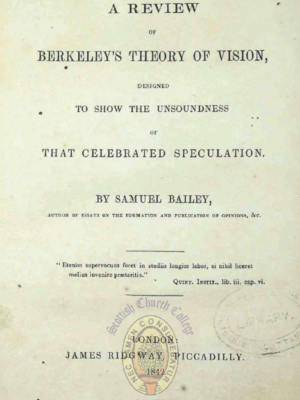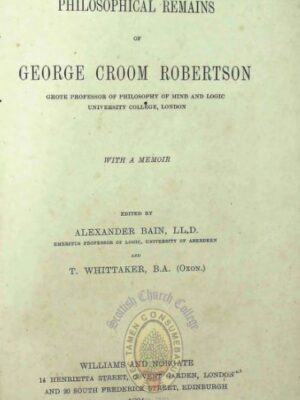Description
James Ward’s Psychological Principles (1918) is a landmark work in early twentieth-century psychology and philosophy of mind. In this volume, Ward explores the fundamental laws governing mental processes, emphasizing the unity of consciousness and the dynamic nature of mental life. Rejecting purely mechanistic interpretations, he presents psychology as a science deeply connected with philosophy and ethics. The book systematically discusses perception, attention, emotion, and volition, offering a holistic view of human experience. Rich in theoretical insight and scholarly rigor, Psychological Principles remains a foundational text for understanding the development of psychology as both an empirical and philosophical discipline.





